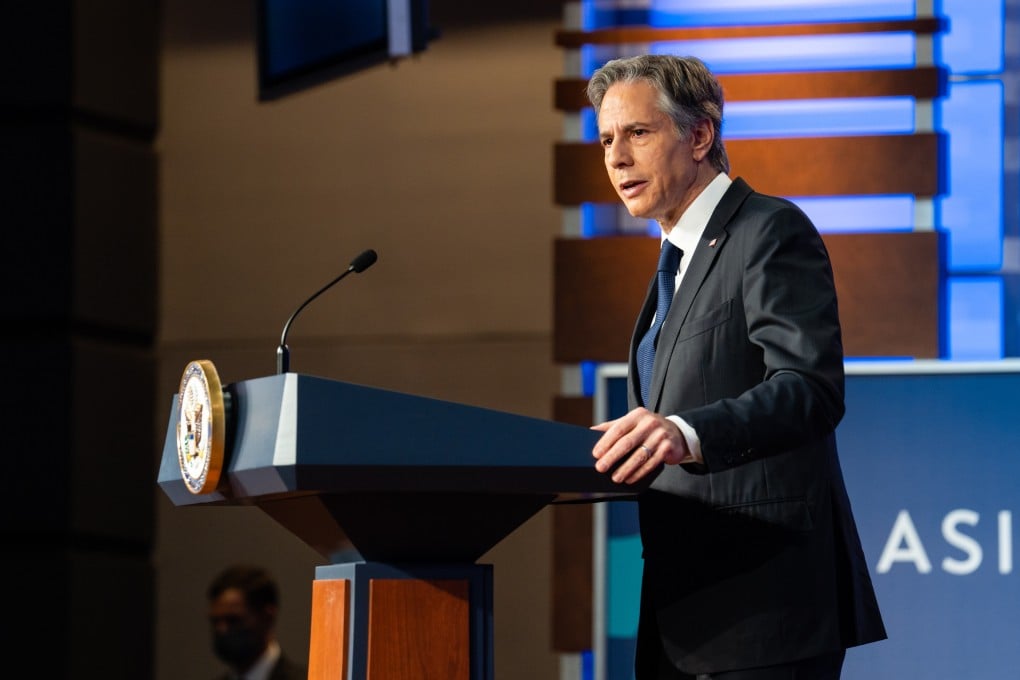Antony Blinken accuses China of undermining global order in major policy speech
- China ‘has become more repressive at home and more aggressive abroad’ under President Xi Jinping’s rule, US secretary of state says
- Blinken also calls for more dialogue with Beijing to find climate change and Covid-19 pandemic solutions

China’s government is undermining the global order that has allowed the country to flourish economically, which requires Washington to work more closely with allies and other countries to counter Beijing’s influence, US Secretary of State Antony Blinken said on Thursday.
“China’s transformation … [was] made possible by the stability and opportunity that the international order provides,” Blinken said in a long-awaited policy speech delivered at George Washington University. “Arguably no country on Earth has benefited more from that than China.”
“But rather than using its power to reinforce and revitalise the laws, agreements, principles and institutions that enabled its success so other countries can benefit from them too, Beijing is undermining it,” he said.
“Under President Xi [Jinping], the ruling Chinese Communist Party has become more repressive at home and more aggressive abroad.”
Speaking for 45 minutes, Blinken also pledged that US President Joe Biden’s administration would work to “shape the strategic environment around Beijing to advance our vision for an open and inclusive international system”, a reiteration of the US leader’s reliance on new – or renewed – alliances to increase pressure on the Chinese government indirectly.
“The scale and scope of the challenge” China poses, Blinken said, had prompted him to create a “China House”, one of the few specific government actions he cited.
